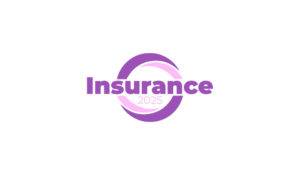sell back life insurance .
However, what if you reach a point in your life when you no longer need your life insurance policy? Perhaps your family has grown up, or you have accumulated enough savings to cover your end-of-life expenses. In this case, selling your life insurance policy may be a smart financial decision. This process is known as a life settlement, and it allows you to sell your life insurance policy to a third-party buyer for a lump sum of cash. In this blog post, we will explore the benefits of life settlements, the process of selling your life insurance policy, and how to determine if it’s the right choice for you. So, if you’re considering selling your life insurance policy, keep reading to learn more about how to unlock the value of your investment.
1. Introduction: Understanding the concept of selling back life insurance
Life insurance is a financial tool that provides peace of mind and security for individuals and their loved ones. However, circumstances can change, and some policyholders may find themselves in a position where they no longer need or want their life insurance policy. In such cases, selling back a life insurance policy can be a viable option to unlock the value it holds.
Selling back life insurance, also known as a life settlement, involves transferring the ownership and beneficiary rights of the policy to a third party in exchange for a cash payout. This option is particularly beneficial for policyholders who have outgrown the need for life insurance coverage, are facing financial challenges, or simply want to access the funds invested in their policy during their lifetime.
Understanding the concept of selling back life insurance is crucial before making any decisions. It’s important to recognize that policies eligible for sale are typically permanent life insurance policies, such as whole life or universal life, as opposed to term life insurance which has a predetermined duration. These permanent policies accumulate cash value over time, and it is this value that can be sold.
When selling back a life insurance policy, the policyholder receives a lump sum payment that is generally higher than the policy’s cash surrender value but lower than the death benefit. The purchasing party becomes the new policy owner and beneficiary, assuming the responsibility of paying future premiums and ultimately receiving the death benefit upon the insured’s passing.
It is essential to note that selling back life insurance is a regulated process and may have tax implications. Consulting with a financial advisor or life settlement specialist can provide clarity on the specific details and considerations involved in selling back a life insurance policy.
In the following sections, we will explore the benefits, considerations, and steps involved in unlocking the value of life insurance through selling back a policy. By gaining a comprehensive understanding of this concept, individuals can make informed decisions about their life insurance coverage and potentially utilize their policy to meet their current financial needs.
2. Reasons to consider selling back your life insurance policy.
If you currently hold a life insurance policy, you may find yourself wondering if there’s a way to unlock its value and put it to use in your present circumstances. Selling back your life insurance policy can be a viable option worth exploring, and here are a few compelling reasons to consider it.
Firstly, financial needs and priorities change over time. The life insurance policy you purchased years ago may have been intended to provide financial security for your loved ones in the event of your passing. However, as time goes on, you may find that your circumstances have evolved, and the need for the policy may no longer be as critical. By selling back your policy, you can access its cash value and redirect those funds towards more immediate financial goals, such as paying off debts, covering medical expenses, or even investing in a new business venture.
Secondly, life insurance policies often come with costly premiums that can strain your budget. If you find yourself struggling to keep up with these premium payments or simply feel that the cost is no longer justifiable, selling back your policy can provide relief. By doing so, you can free up those monthly premiums and allocate them towards other areas of your life where the funds may be more beneficial, such as saving for retirement or funding your children’s education.
Lastly, selling back your life insurance policy can provide you with a lump sum of cash that you can use to enhance your quality of life or pursue new opportunities. Whether it’s taking that dream vacation you’ve always wanted, renovating your home, or starting a new hobby, the extra funds can open doors to experiences and endeavors that may have otherwise remained out of reach.
It’s important to note that the decision to sell back your life insurance policy should be carefully considered and based on your unique circumstances. Consulting with a financial advisor or life settlement professional can help you evaluate the potential benefits and drawbacks, ensuring that you make an informed decision that aligns with your long-term financial goals.
In summary, selling back your life insurance policy can offer a way to unlock its value and address your changing needs and priorities. From gaining immediate access to cash to reducing financial burdens, it’s a decision worth exploring if you find yourself questioning the continued relevance and benefits of your current policy.
3. Evaluating your life insurance policy: Is it eligible for sale?
Before considering selling your life insurance policy, it is crucial to evaluate its eligibility for sale. Not all policies can be sold, so it is important to understand the criteria that determine whether your policy qualifies.
The first step is to review the type of policy you have. Generally, both term life insurance and permanent life insurance policies are eligible for sale. Term life insurance policies have a specific coverage period, while permanent life insurance policies, such as whole or universal life, provide coverage for the insured’s entire lifetime.
Next, assess the current status of your policy. In order to be eligible for sale, your policy should typically have a face value of at least $100,000. Additionally, the policy should have been in force for a certain number of years, often with a minimum duration of two to three years.
Furthermore, the insured’s age and health condition play a significant role in determining eligibility. Generally, individuals who are at least 65 years old or have experienced a decline in health since purchasing the policy are more likely to qualify for a life insurance sale.
Lastly, some policies may have restrictions imposed by the insurance company. For instance, certain policies may have a surrender charge or a waiting period before they can be sold. It is essential to thoroughly review your policy documents or consult with a financial professional to understand any such limitations.
In conclusion, evaluating your life insurance policy is crucial to determine its eligibility for sale. Consider the type of policy, current status, age, health condition, and any potential restrictions. By understanding these factors, you can make an informed decision about whether selling your life insurance policy is a viable option for unlocking its value.

